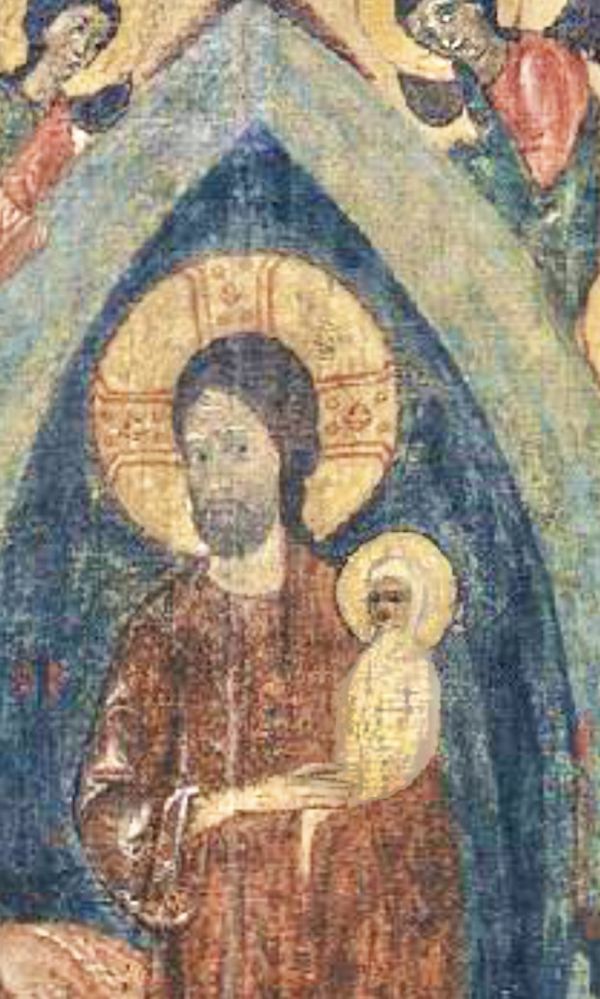(Mt 1:1-16.18-23)
Since the 7th century, the event of the first Dawn preceding the Coming of the Sun of Justice has been identified by Pope Sergius in the birth of Mary - according to Dante «a fixed term of eternal counsel».
The Mother of God is a figure who in the panorama of spirituality brings a radical novelty, because she does not generate the awaited David, but rather the most humble and favorable Person, with non-aggressive energy.
In her icon of «newly generated girl», she is also an image of the different, but real humanity, "accomplice" of our condition; from the heart not more artificial and stone [legalist] but of flesh.
So today’s Feast is a sort of prefiguration of Christmas, an event of Revelation of a disconcerting but finally authentic Face of God - and of the realized creatures.
Here, then, we are asked by the Gospel about the weight to be given to the rigidity of the norms, which in the history of spirituality have often devoured the spontaneous being of those called by the Father.
Genuineness that simply stimulates to express oneself, starting from one’s own vocational character.
Even the cultures animated by Wisdom of Nature attest to its weight.
The Tao Tê Ching (LVII) writes: «When with correction the world is ruled, with falsehood weapons are used [...] For this the saint says: I do not act and the people are transformed by themselves [...] I don’t crave and the people become simple».
In the ancient East the genealogies indicated only men, and it is surprising that Mt mentions the name of as many as five women, considered only slavish creatures, unreliable, impure by nature.
But in the story of Mary‘s four companions there is not a little a-normal (even for the chosen model of life) but that it’s worth it.
In order to reach the human fullness of the Son, God did not claim to overcome historical events, but on the contrary He took them on and valued them.
The path that leads to Christ is not question of climbing, nor of results or performance to be calibrated better and better in a linear crescendo - therefore moralizing and dirigist, which doesn’t impose turns that matter, nor solves the real problems.
In events, the Eternal manages to give wings unfolded not so much to strength and genius, but to all the poor origins, to the smallness of our nature, which suddenly turns into totally unpredictable wealth.
And if we constantly tear the thread, the Lord re-ties it down - not to fix it, to put a patch on it and to resume as before, but to redo a whole new plot. Starting from the defeats.
It is the energy of inadequacy and failure that makes us re-enter ourselves and finally “lose” our minds. Other configurations of the soul await us.
In the Gospels of Childhood [in Mt] God takes on two Names: Redeemer [Yeshua: God is Savior] and With-us. The sense of these prerogatives is not mechanical, but theological.
The proper Name of the Son Jesus describes his Work of recovering the whole being.
And the characteristic attribute Immanu'el [taken from Isaiah] points all the sons - our (many) addresses, that we are each, growing over time.
Incarnation: the Father is placed at the side of his intimates.
Not only does He not fear to make himself impure in contact with things concerning the dynamics of the earth: He even recognizes himself in their Condition.
For this reason, Joseph‘s discomfort even gives rise to the culmination of the entire History of Salvation.
What is striking about Mt’s narration is: the possibility of irruption of the salvific Plan’s top spring not from a religious certainty, but from a Doubt!
Every eminent Gift passes through the “flesh”, and here - in the unsafe - what seemed controversial becomes fruitful.
Embarrassment and the improbable finally activate intense and full life.
The Spirit that slips into the holes of standard mentalities finds a ‘point’ within us that allows us to flourish differently now, in transparency.
The true turning points of history. The difference between devotion and Faith.
[Nativity of the Blessed Virgin Mary, September 8]












